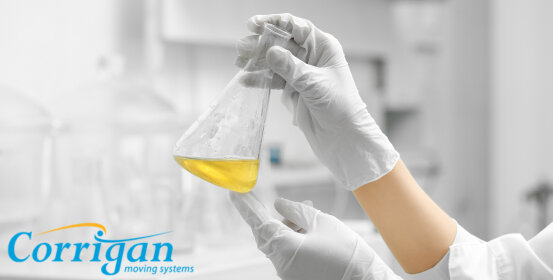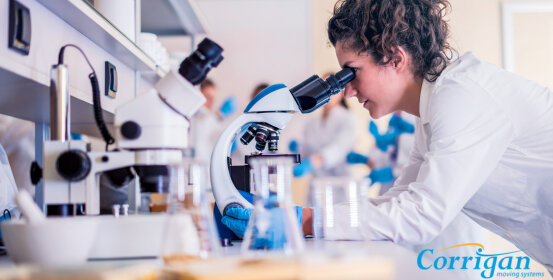Laboratory Relocation for Academic Institutions: Unique Considerations and Solutions

Moving a laboratory, whether within the same place or to a different site, presents specific challenges that need focused effort. Auburn Hills Academic institutions and research facilities house a wide range of equipment, important research materials, and delicate instruments. Achieving an effective move necessitates careful planning, expert knowledge, and a thorough knowledge of the academic environment. This thorough guide provides tips into navigating the unique considerations involved in the relocation of laboratory facilities.
Understanding the Auburn Hills Academic Landscape
Auburn Hills Colleges are vibrant, multifaceted environments where research facilities play a vital role in teaching and research. Whether the relocation involves one lab or a complete department, there are several important aspects to consider:
- Variety of Equipment: Academic laboratories typically have a broad spectrum of equipment, from basic lab benches and storage units to sophisticated analysis tools and specialized research apparatus. Each piece needs delicate handling and often has distinct moving needs.
- Sensitive Research Materials: Many university labs house sensitive materials, such as bio-specimens, chemicals, and scientific data. These materials often need special handling, climate control, or secure transport.
- Collaborative Environment: Unlike commercial labs, academic laboratories are frequently shared spaces used by multiple research groups or departments. Organizing a move in such an setting necessitates careful communication and planning to avoid disturbance.
- Teaching obligations: Academic institutions have regular educational activities. The relocation process must be planned around teaching schedules, ensuring minimal effect on classes and student availability to laboratory facilities.
Critical aspects for Auburn Hills Academic Laboratory Relocation

- Early and Detailed Planning
Planning is the foundation of a successful laboratory move, especially in the academic context. Begin preparations as soon as the relocation decision has been made. Engage with all participants, including faculty, researchers, lab managers, and students, to understand their requirements and timelines. Create a comprehensive moving plan that includes ane xhaustive inventory, a schedule that aligns with academic calendars, and a effective communication plan.
- Personalized solutions for specialized requirements
Every university laboratory is unique, with particular needs based on its research focus and equipment. It’s important to design tailored approaches for each lab being moved. This may involve specialized packing for fragile instruments, temperature-controlled transport for heat-sensitive substances, or secure handling for dangerous materials. Corrigan Movers offers custom solutions to handle these varied requirements, ensuring that all elements of the relocation are managed carefully.
- Managing Multiple Stakeholders
Academic moves involve a broad spectrum of concerned parties, from faculty members and researchers to management and facilities management. Clear communication and collaboration among these teams are vital. Set up open communication pathways and regular update meetings to keep everyone informed and involved throughout the moving process. This method helps to align expectations and reduces the risk of confusion or holdups.
- Ensuring Regulatory Compliance
University labs must adhere to strict regulations, including those related to protection, environmental protection, and ethical standards. During a relocation, it’s important to comply with these regulations to prevent fines or disturbances to research activities. This includes accurate records for the moving of dangerous substances, following biosafety protocols, and obtaining appropriate permits. Corrigan Moving Systems’ expertise in regulatory compliance ensures that all legal obligations are fulfilled during your laboratory relocation.
- Reducing Downtime and Disruption
Academic schedules are often filled with , research deadlines, and ongoing projects. Minimizing downtime is vital to make sure that educational activities and study activities proceed without disruption. Organize the move during semester breaks or other low-activity times to lessen disruption. Additionally, partner with a Auburn Hills moving company that can provide flexible scheduling and efficient packing and unpacking services to expedite the process.
- Safeguarding Research Data
Research data is often one of the key resources in a university laboratory. During relocation, it’s crucial to make sure that all data is securely backed up and safeguarded. This may include relocation of hard drives and data servers or using safe cloud storage. It’s also essential to comply with any institutional policies regarding data protection and privacy during the move.
Specialized Solutions from Corrigan Moving Systems
Corrigan Moving Systems has broad expertise in overseeing the challenges of laboratory relocations for Auburn Hills universities. Here’s how we adapt our services to address the special requirements of university laboratories:
- Expert Handling of Equipment: Our crew is trained to manage a broad spectrum of laboratory equipment, including microscopes, incubators, ventilation hoods, optical tables, and centrifuges. We make sure that delicate instruments and sensitive apparatus are wrapped, relocated, and reinstalled with the highest precision.
- Secure Transport for Sensitive Materials: We supply specialized packing and climate-controlled transport options for bio-specimens, chemical substances, laboratory glass, and other fragile materials. Our transport solutions ensure these materials reach their new site securely and intact, maintaining temperature-controlled environments ranging from ambient to -190 degrees Celsius. Devices remain plugged in and operational during transport, with 24/7 monitoring.
- Regulatory Compliance and Documentation: Our expertise in regulatory compliance means we can oversee all required paperwork and permits, making sure that your relocation adheres to all pertinent safety and legal guidelines. This requires biosafety protocols, hazardous material transport regulations, and environmental protection guidelines.
- Customized Moving Plans: We create detailed, customized moving plans for each relocation, adapted to the specific requirements of your laboratories and fitting your academic schedules. Our plans ensure minimal disruption to teaching and research activities.
- Limiting Disruption: We work closely with your staff to organize the move around your academic calendar, minimizing disruption to classes and research activities. Our flexible schedules and fast packing and unpacking help expedite the process, ensuring a smooth transition.
- Temperature-Controlled Transport: We manage the relocation of your freezers and refrigerators, guaranteeing thermally-regulated environments are kept throughout the relocation. This service is vital for keeping bio-specimens, reagents, and other thermally sensitive items.
How to Get Started with Your Auburn Hills Laboratory Relocation
If you’re considering a lab relocation in or to a new location, working with a professional Auburn Hills moving company like Corrigan Moving Systems can make all the difference. With our specialized services and extensive experience in the educational landscape, we are equipped to manage the unique challenges of your move.
Get in touch with Corrigan Moving Systems now to discuss your laboratory relocation requirements. Our team of experts is ready to offer a personalized plan that makes sure of a efficient, efficient, and successful move, allowing you to focus on what you do best—instruction and research. Let us help you transition seamlessly to your new location, preserving the integrity of your work and the continuity of your academic mission.
- Auburn Hills
- |
- Washington Twp
- |
- Oakland Twp
- |
- Utica
- |
- Troy
- |
- Shelby Twp
- |
- Rochester Hills
- |
- Rochester
- |
- Oxford
- |
- Orchard Lake
- |
- Macomb Twp
- |
- Lake Orion
- |
- Lake Angelus
- |
- Commerce Twp
- |
- Clarkston
- |
- Bloomfield Hills
- |
- Bloomfield
- |
- Birmingham
- |
- West Bloomfield
- |
- White Lake
